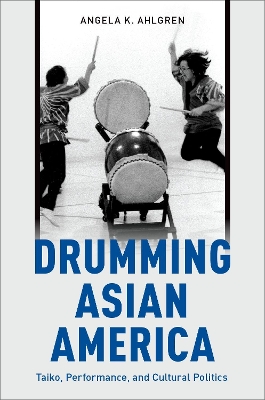With its dynamic choreographies and booming drumbeats, taiko has gained worldwide popularity since its emergence in 1950s Japan. Harnessed by Japanese Americans in the late 1960s, taiko's sonic largesse and buoyant energy challenged stereotypical images of Asians in America as either model minorities or sinister foreigners. While the majority of North American taiko players are Asian American, over 400 groups now exist across the US and Canada, and players come from
a range of backgrounds. Using ethnographic and historical approaches, combined with in-depth performance description and analysis, this book explores the connections between taiko and Asian American cultural politics.
Based on original and archival interviews, as well as the author's extensive experience as a taiko player, this book highlights the Midwest as a site for Asian American cultural production and makes embodied experience central to inquiries about identity, including race, gender, and sexuality. The book builds on insights from the fields of dance studies, ethnomusicology, performance studies, queer and feminist theory, and Asian American studies to argue that taiko players from a variety of
identity positions perform Asian America on stage, as well as in rehearsals, festivals, schools, and through interactions with audiences. While many taiko players play simply for the love of its dynamism and physicality, this book demonstrates that politics are built into even the most mundane aspects of
rehearsing and performing.
- ISBN10 0199374015
- ISBN13 9780199374014
- Publish Date 7 June 2018 (first published 24 May 2018)
- Publish Status Active
- Out of Print 8 March 2021
- Publish Country US
- Imprint Oxford University Press Inc
- Format Hardcover
- Pages 198
- Language English
